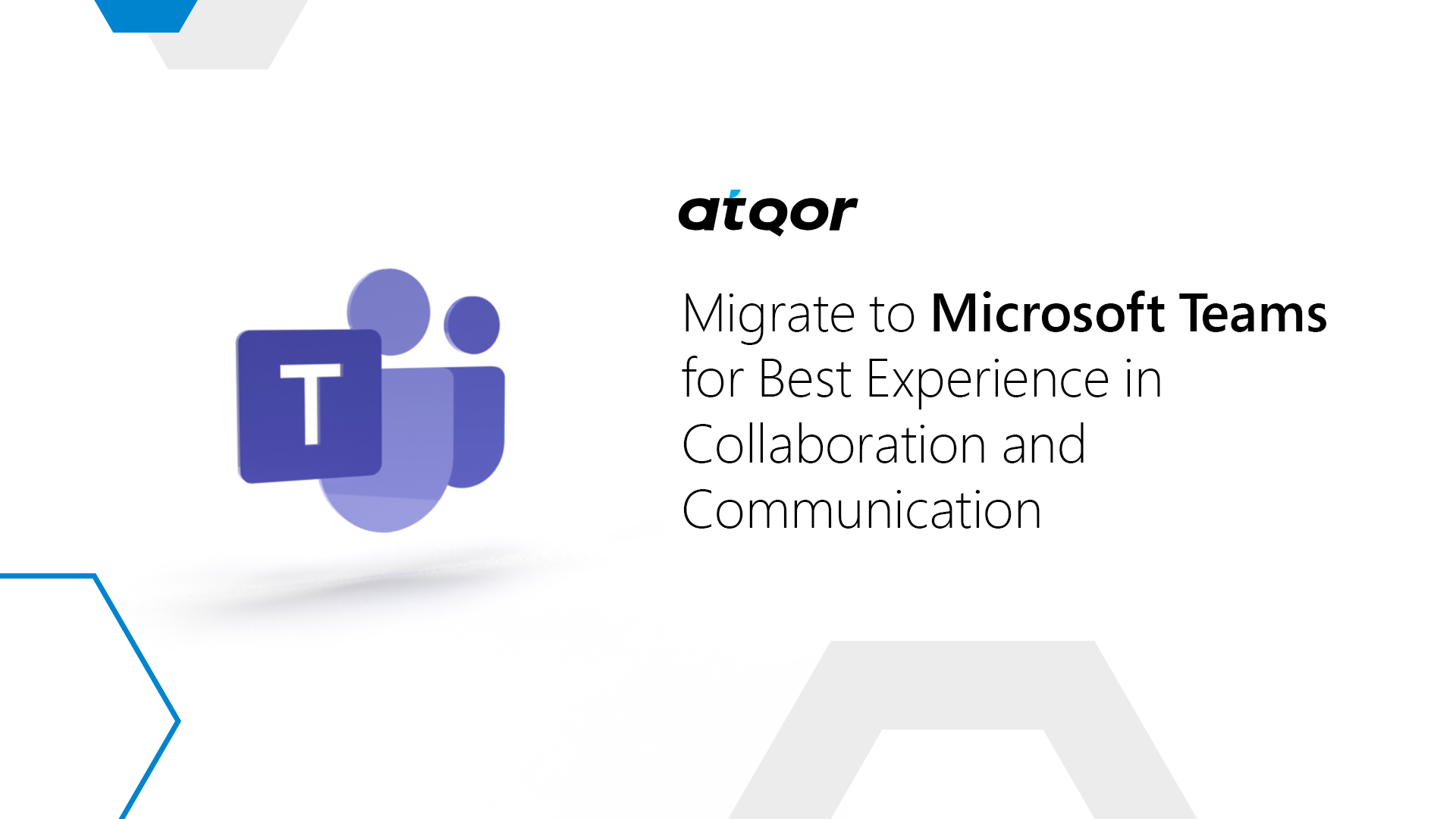September 13, 2021 | Digital Marketing , Microsoft Teams

MS Teams is an application by Office 365 for better communication flow between the teams, departments, and organization. It is a cloud-based application and thus can be accessed from anywhere at any time. This has been beneficial, especially during the pandemic period with all the new adjustments and remote working.
After identifying the clients’ needs and issues and assessing their capabilities, 2 paths are recommended: migrating all employees at once or initiating a pilot program.
Regardless of that Teams implementation includes the following stages:
Additional Team support is offered depending on the needs of the client.
There are various applications from where you might need to migrate I.e., Slack, Skype, Google Meet, etc. to Microsoft Teams. MS Teams has all the features you might need in an application, and thus switching to it might be the best decision for the organizations.
Here, the communication happens in real-time, and the issue of email not being read doesn’t happen. It lest specific people have a chat on certain topics and keep only those involved in it.
Microsoft Teams is fully integrated into Office 365. The entire Microsoft office is a family. Applications like Word, Excel and PowerPoint can be easily accessed, which is one of the biggest benefits.
The voice call feature can hold up to 250 employees in one high-quality call, which eliminates the need for new headsets and stuff.
Documents can be collaborated and edited in real-time same as the other user. And these documents are auto saved in teams, and thus there is no data loss.
Instant updates are sent across the organization in no time with a click of a button, no matter what number of employees are there. Thus, in a single meet, information is shared.
If the organization already has a Microsoft office 365 license, this will cost them nothing. Extra features might cost a few bucks but compare to the competitors, this doesn’t need to be brought from scratch.
There is a shortage of space as it equips with the ability to create Teams, leading to too many teams and the need for large storage. But Avenue control helps restrict permissions and create extra teams.
The number of allowed channels per team is 100. Smaller teams don’t face an issue here. It’s the large teams that have a little hassle. But files are backed up on SharePoint for security, so it isn’t an issue.
It sometimes misses calling your attention to groups with similar or identical names, which could lead to wasted time and effort. The simple solution is to check before creating a group,i so names and stuff don’t mix up.
This is the difference between other applications and MS Teams. Migrating to Teams would be a great start itself. And this will also help the organization with communication and collaboration.
Microsoft Teams is an assertive communication and collaboration tool that can help your business work more efficiently. However, if you’re currently using a different communication tool, such as Skype for Business, you may wonder if it’s worth the hassle to migrate to Microsoft Teams.
Before planning an organization’s migration plan, you need to understand how your workspaces are being used, and that helps you determine the scope of migration.
In Teams, users join a team which is a collection of teams. You can use analytical tools to know what channels are used the most and which ones to transfer.
Apps in others are the same as Teams, so once if you have the list of apps and their configuration, you can search them up in MS Teams. If the administrator has restricted any apps, then those won’t show.
The identity schemes in other apps won’t work in MS Teams, and thus, you need to start planning the Teams rollout.
After exporting all the important information from other apps, now it’s time to import that into MS Teams. This serves as the best opportunity to access what is worked well for the team based on use and including those in teams.
The closest option of Teams is a workspace that contains all the channels. Third-party solutions have usage statistics about the activity and usage of these channels.
Use the channel inventory and work with your application to determine what channels will become Teams and what will remain as it is. You can use either Power Bi or Excel to help you with it.
After you determine your transition plan, you can begin creating your channels and Teams. And after that, you can start copying files from the application, configure apps, and start licensing users.
This migration will be a great benefit for the organization and employees, especially working remotely. Employees can communicate and collaborate at work in a simple, flexible, effective way. It has the right tools that help extensive collaboration remotely from multiple devices without any risk of miss communications or data loss.
Initiate your Teams Development & Migrate to MS Teams today and make communication and collaboration easy and fun.